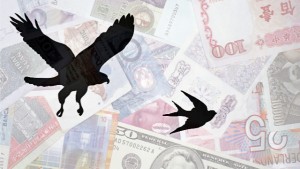Home » Commentary » Opinion » Dovish confessions of a hawkish mind
· Ideas@TheCentre
 When it comes to monetary policy the world is divided into doves and hawks. The former tends to underplay the impact of inflation, focusing on economic growth and lower interest rates; the latter displays more aggressive behaviour against rises in inflation, with more inclination towards higher interest rates and no sympathy for artificially sustained short-term economic activity.
When it comes to monetary policy the world is divided into doves and hawks. The former tends to underplay the impact of inflation, focusing on economic growth and lower interest rates; the latter displays more aggressive behaviour against rises in inflation, with more inclination towards higher interest rates and no sympathy for artificially sustained short-term economic activity.
I have always sided with the hawks. Monetary policy should focus on the trajectory of inflation; economic growth should be left to the proper conduct of economic institutions, i.e. the formal and informal set of incentives to produce and work (for example, an efficient tax system, a reliable rule of law, competitive markets).
But these are not ordinary times.
During the last seven-years-and-counting muted global economic growth, we have seen unprecedented levels of monetary base expansion (aka quantitative easing) and the rise of negative interest rates amid threats of deflation hand-in-hand with massive asset inflation.
In this bizarre environment, the recent decision of the US Federal Reserve (the Central Bank of the central banks) to maintain its benchmark cash rate close to zero shows how blurred the boundary between doves and hawks has become.
I confess that using a hawkish perspective on inflation leads me to a dovish decision to support the maintenance of the US cash rate at current levels.
At 0.2%, the US annual inflation rate is well below the 2% target rate; on top, a strong dollar and falling commodity prices (in particular oil) are good omens against future inflation. Further, many US economic indicators – e.g. manufacturing production, construction spending, durable goods orders, car sales, housing prices, mortgage delinquency rates – have all yet to fully recover from pre-GFC levels. And while unemployment rates and full-time employment point to strong recovery, wages growth is weak and labour force participation rates are still at the lowest record levels since late 1970s.
Likewise, the Fed decision is also consistent with a faltering, deflationary global demand: a faster-than-expected soft landing in China, the EU project in identity crisis, Japan still battling its 1990s depression, emerging markets in retreat.
In short, let’s hail the zero-lower bound. Alas, these are not ordinary times.
Dovish confessions of a hawkish mind